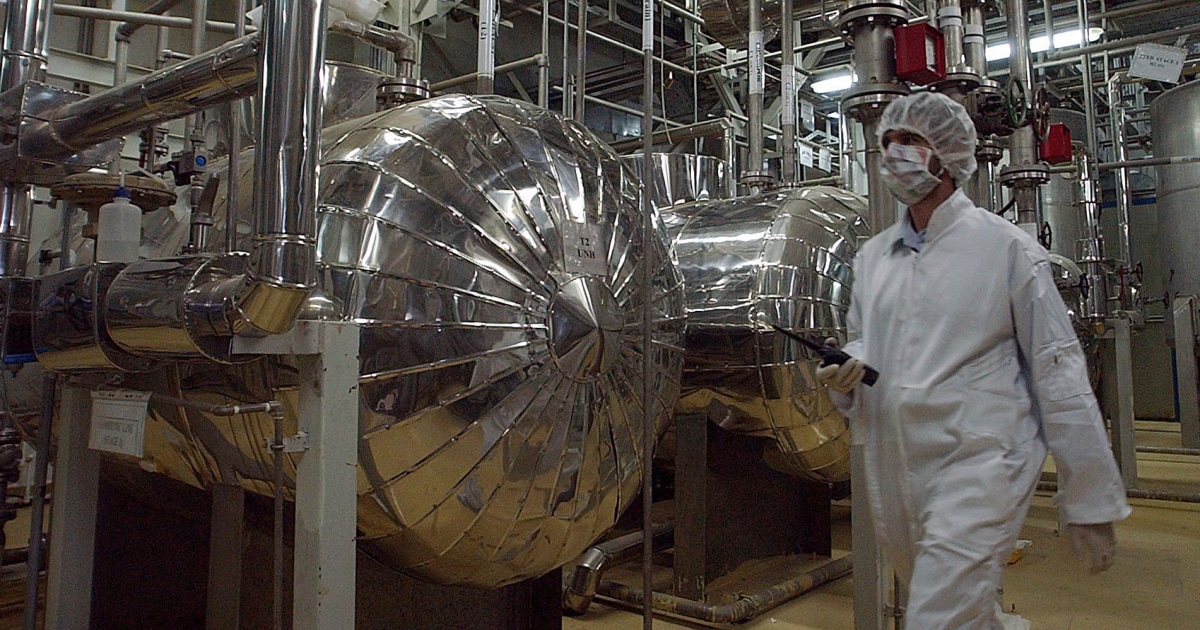Iran has the capacity to produce nuclear weapons and is prepared to change its policies on using them if faced with an existential threat, an adviser to its supreme leader said Friday in the latest bellicose statement from the country amid its high-stakes tit-for-tat with Israel.
Kamal Kharrazi also said the country is likely to increase the range of its ballistic missiles.
“If an existential threat arises, Iran will modify its nuclear doctrine, we have the capability to build weapons and have no issue in this regard,” Kharrazi, an adviser to Supreme Leader Ayatollah Ali Khamenei, told the Lebanese broadcaster Al Mayadeen.
Kharrazi added that “the only thing currently prohibiting this is the leader’s fatwa,” but indicated that Iran’s nuclear doctrine could change if the nation faced an existential threat. A fatwa is a ruling by an Islamic leader or body; Khamenei issued a fatwa against nuclear weapons in 2003.
“What the Israelis did in response to our missile attacks was minimal,” Kharrazi said. U.S. intelligence agencies did not immediately respond to a request for comment.
CIA Director William Burns said earlier in October that the United States had no evidence that Iran has decided to build a nuclear weapon, but that Iran could quickly secure enough fissile material for an atomic bomb if it chose to, and there would be less time for the world to respond.
A State Department spokesperson told NBC News that the U.S. remains very concerned with Iran’s nuclear activities
“The President has made clear: We are committed to never letting Iran obtain a nuclear weapon—and we are prepared to use all elements of national power to ensure that outcome,” the spokesperson said.
The spokesperson added that the U.S. intelligence community continues to assess that the supreme leader has not made a decision to resume its nuclear weapons program.
“That said,” the spokesperson added, “we take any nuclear escalation by Iran incredibly seriously and will respond accordingly.”
Iran has long denied it was seeking a nuclear weapons program after abandoning one in 2003.
On Thursday, Netanyahu said Israel had unprecedented freedom of action after the recent airstrikes against Iran.
“We can reach any place in Iran as necessary,” he said in a speech. “The supreme goal I gave to the Israel Defence Forces and the security branches is to prevent Iran from achieving a nuclear weapon.”
Retaliatory strikes
Israel hit Iran with three waves of predawn strikes on military targets Saturday, in what U.S. officials and others hoped would be the last shot in a hostile exchange between the two regional powers.
The strikes came weeks after Iran launched a barrage of missiles at Israel in retaliation for its assassinations of Hamas and leaders of Iran-backed Hezbollah. The escalation came as Israel refocused from the war in Gaza triggered by the Oct. 7, 2023 terror attacks to fight the Lebanese militia and political group which it had been trading blows with for a year.[
Iran had initially downplayed the impact of Israel’s strikes on its military facilities, but in recent days has begun to voice increasingly belligerent rhetoric.
On Thursday, Hossein Salami, commander of Iran’s Revolutionary Guard, threatened “an unimaginable response” for Israel’s attack on the country, Tasnim, the semiofficial Iraninan news agency reported.
“Iran will undoubtedly respond to this action at the appropriate time and in a suitable manner,” Kharrazi said.
“In the matter of missile range, we have so far considered Western sensitivities, particularly those of the Europeans,” he said, referencing Iran’s historical reliance on Europe as a diplomatic lifeline, which have deteriorated recently.
“When they disregard our sensitivities, especially regarding the territorial integrity of the Islamic Republic of Iran, there is no reason for us to consider their concerns,” he said. “There is a possibility that the range of Iran’s missiles may increase.”
In 2015, during the administration of President Barack Obama, it sealed a nuclear deal with the United States and other world powers, promising to curb its nuclear program in exchange for billions of dollars in sanctions relief.
But in 2017, then-President Donald Trump withdrew from the plan, saying it did not curtail Iran’s ballistic missile program or the influence of Iran’s powerful proxies in the region. Since the U.S. exit, Iran has steadily blown through the restrictions on its nuclear activities and blocked international inspectors from seeing some nuclear sites.

